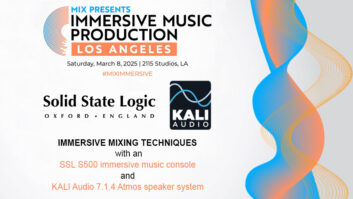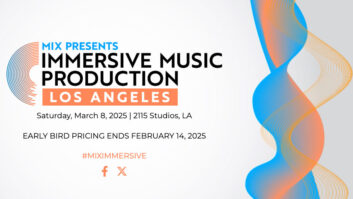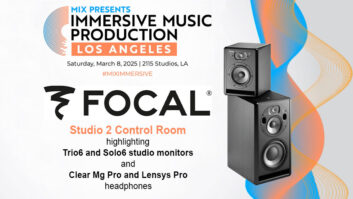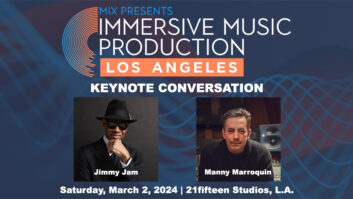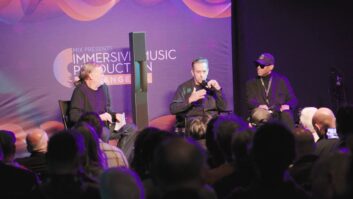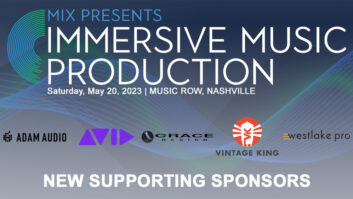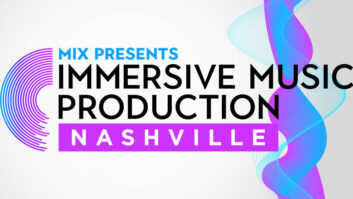In recent years, the city of Memphis has made a concerted effort to revitalize its music industry, which used to be a much more significant part of the city’s economy. One entity that’s helping the city to do just that is a company called Made in Memphis Entertainment (MIME), whose founder and CEO is songwriting legend David Porter.
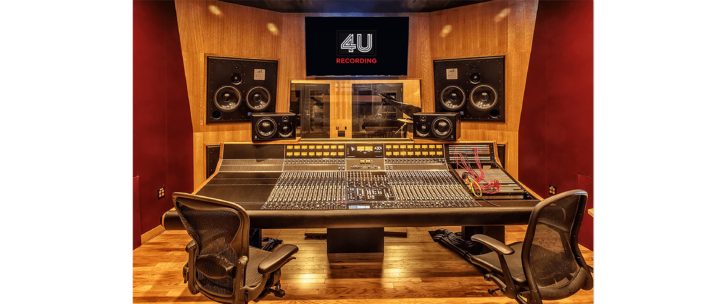
Porter started out his career as a staff songwriter at Stax Records. He made his reputation by writing “Soul Man,” “Hold On I’m Coming” and “I Thank You” for Sam and Dave, and went on to work with Isaac Hayes and many others. He was named by Rolling Stone as one of the Top 100 Songwriters of All Time.
One of MIME’s operations in Memphis is a studio called 4U Recording. Built in 2015 to service MIME’s record label, the studio has branched out to commercial clients over the past couple of years.
I had the opportunity to speak with 4U Studio Manager Crystal Carpenter and Chief Engineer Kerry Kernan about the studio, its unique business model and what it offers to the Memphis music community.
“We have six rooms,” Kernan says. “Three main studios, A, B and C. Studio A, which has a brand-new API Legacy AXS console, is our flagship room. And studio B is set up as a full tracking room, but it’s also set up as a mix room, a lot of stereo outboard gear. We have Burl converters throughout all the studios.”
“We have a label, we have distribution and we have publishing, so we’re more like a creative hub for artists,” adds Carpenter.
Read more Mix Blog Studio: Practice Safe Session.
It’s those business capabilities, which also include sync licensing, that have helped keep 4U viable during a time when many commercial studios are having a tough go.
“If we had to rely only on 4U,” Kernan says, “it would make sense that it would be struggling. But since we’re part of an umbrella [organization], when these artists come in to get signed for distribution or publishing, they see the legitimacy of our operation. And that goes a long way. It shows the extent of the investment we made into caring about the sound.”
The impetus for the Memphis-forward aspects of the studio start with Porter, who made educating artists about recording and the music industry one of the missions of the studio.
“We try to teach the whole artist’s development,” says Carpenter. “This is really built on David Porter’s vision of building an artist from the ground up. And that’s what the studio is doing, as well.”
The studio has benefitted from Memphis’s push to reinvigorate its music industry. “The city invested in us to embark on a journey to really uplift the music community in Memphis,” Carpenter says. “We’re here to put it on the map again, like it’s our social responsibility. We have to do this for the city of Memphis.”
Carpenter, who’s a DJ in her spare time, has also prioritized getting more African-American women involved into the audio engineering world. One route is through internships at the studio.
“It’s about giving opportunity and identifying the ones who really want to make it. I do a lot of mentorship with different organizations. So I kind of meet young women, they say they want to do this and do that. And we have a pipeline to get them there. We want to open the door to all types of people.”
In this bleak time in the music world—and the world in general—it’s nice to hear some positivity, which was the vibe I got when talking to Carpenter and Kernan about 4U.
